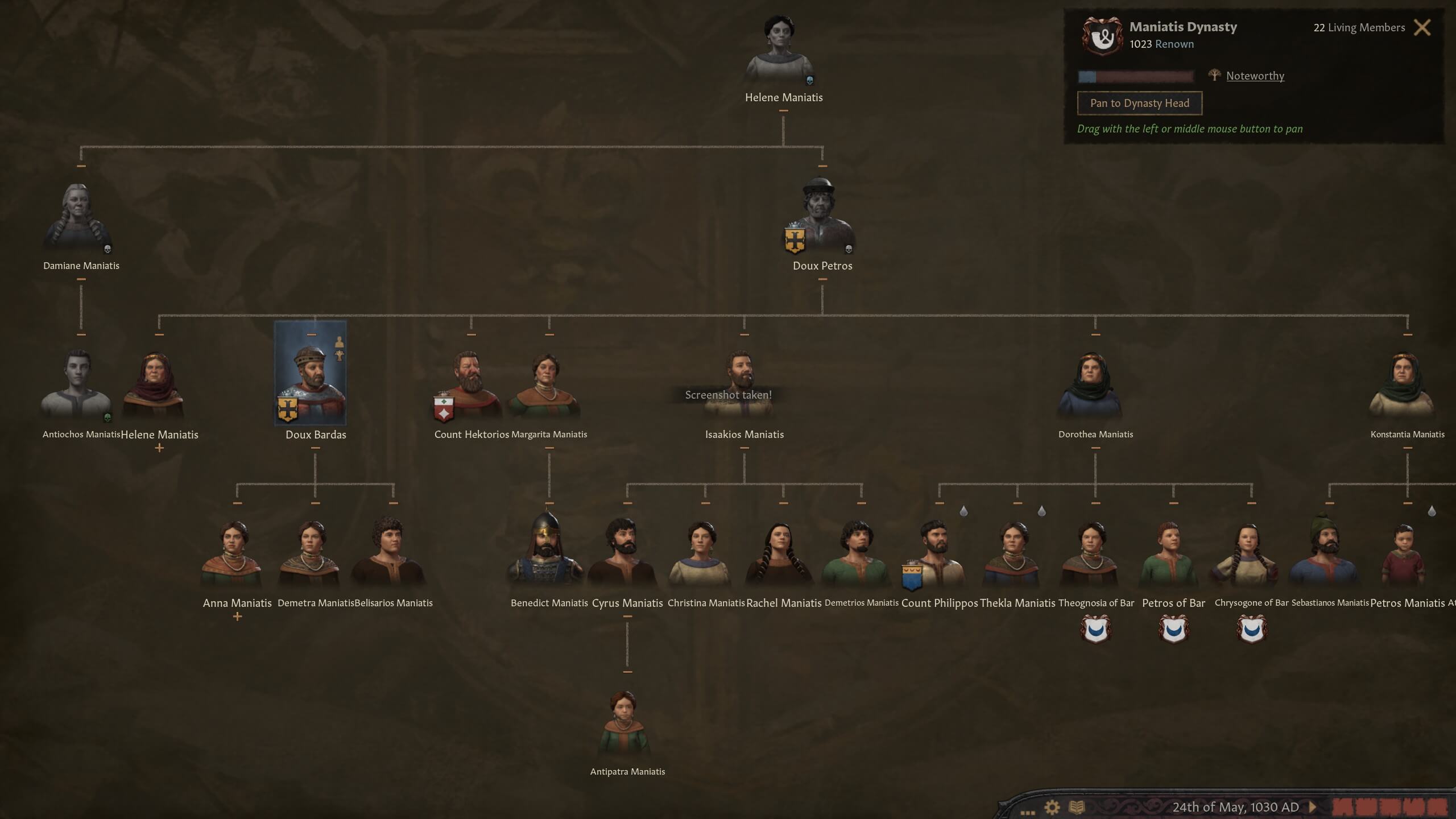If you have played CK3, you have most likely been screwed by the death of your player character and the subsequent succession that fractured your realm into pieces at one point or another. This guide on succession in Crusader Kings 3 will help you handle all future successions and allow your realm to soar to unknown heights.
Interested in more Crusader Kings 3 guides? Visit our Crusader Kings 3 section – or check out the guides for all other games we cover on the website.
Eligible Children (Gender Law)
- Which of your children can inherit your titles depends on your gender law.
- Agnatic: Only sons can inherit titles
- Enatic: Only daughters can inherit titles
- Agnatic-Cognatic: Daughters will not inherit titles as long as there are eligible sons; daughters with a son take precedence over daughters without sons.
- Enatic-Cognatic: Sons will not inherit titles as long as there are eligible daughters; sons with a daughter take precedence over sons without daughters
- Cognatic: Sons and daughters inherit titles
- Bastards will not inherit titles unless they are legitimized
- Children of bastards can only inherit titles, if they are born after the legitimization
- Traits that prevent inheritance:
- Bastard Founder
- Devoted
- Disinherited
- Eunuch
- Order Member
- Traits considered to be criminal
Realm Succession Law
- Single Heir
- Primogeniture
- All titles are inherited by the oldest eligible child. The children of dead or disinherited children take precedence over younger siblings of the dead or disinherited child.
- Ultimogeniture
- All titles are inherited by the youngest eligible child. The children of dead or disinherited children take precedence over older siblings of the dead or disinherited child.
- House Seniority
- All titles are inherited by the oldest eligible member of the house.
- Primogeniture
- Multiple Heirs
- Confederate Partition
- Titles on the same tier as your top-level titles will be created if you hold more than 50% of the de jure land of the title.
- Your oldest child receives the primary title, the capital, and any higher de jure title associated with the capital.
- Titles on the same level as the primary title are distributed as equally as possible to the other eligible children with priority to the oldest children with the fewest titles.
- Children who inherit a title on the same level as the primary title gain independence.
- All remaining titles on the levels below are distributed in the same manner.
- Children who only inherit titles on lower levels than the primary title become vassals of the primary heir.
- The last step is repeated until all titles on all levels are distributed
- Partition
- Your oldest child receives the primary title, the capital, and any higher de jure title associated with the capital.
- Titles on the same level as the primary title are distributed as equally as possible to the other eligible children with priority to the oldest children with the fewest titles.
- Children who inherit a title on the same level as the primary title gain independence.
- All remaining titles on the levels below are distributed in the same manner.
- Children who only inherit titles on lower levels than the primary title become vassals of the primary heir.
- The last step is repeated until all titles on all levels are distributed
- High Partition
- Eligible children are divided into Primary Heir and Other Heirs.
- The rules of partition are applied, Other Heirs are treated as a single person.
- TItles that were distributed to Other Heirs are distributed between the Other Heirs applying the rules of partition.
- Confederate Partition
Surviving Confederate Partition
- Problem: You have 3 sons but only hold 2 duchy titles.
- Your primary heir inherits the duchy your capital is located in.
- Your second son inherits the other duchy, all de jure counties in that duchy, and gains independence.
- Since your third son can’t inherit any duchy titles, he will receive county titles from the domain of your primary heir (becoming his vassal) until he is as equally situated as possible leaving the primary heir with a duchy title but little land, income, and levies.
- Keeping your domain together is vital.
- Siblings gaining independence with their own top-level titles will receive land which they barely control resulting in very few available troops and making the land easy to conquer to reunify the realm.
- Try to hold as many top-level titles as you have children or try to meet the requirements for enough titles to be created upon inheritance.
- Your primary heir gets a claim on the top-level title his siblings received during inheritance, allowing for a relatively simple reunification of the realm.
- Your primary heir will not get claims on the titles of siblings who became his vassal during inheritance.
- Try to hand sufficient titles outside of your domain over to your sons before inheritance in order to avoid them cannibalizing your domain. These titles will count toward their inheritance.
- Disinherit some eligible children who won’t receive the necessary titles to save your domain.
- This option is only available if you are the dynasty head.
- Use hooks you have to on your children to imprison and subsequently execute them, receiving a Tyranny penalty.
Interested in more Crusader Kings 3 guides? Visit our Crusader Kings 3 section – or check out the guides for all other games we cover on the website.


